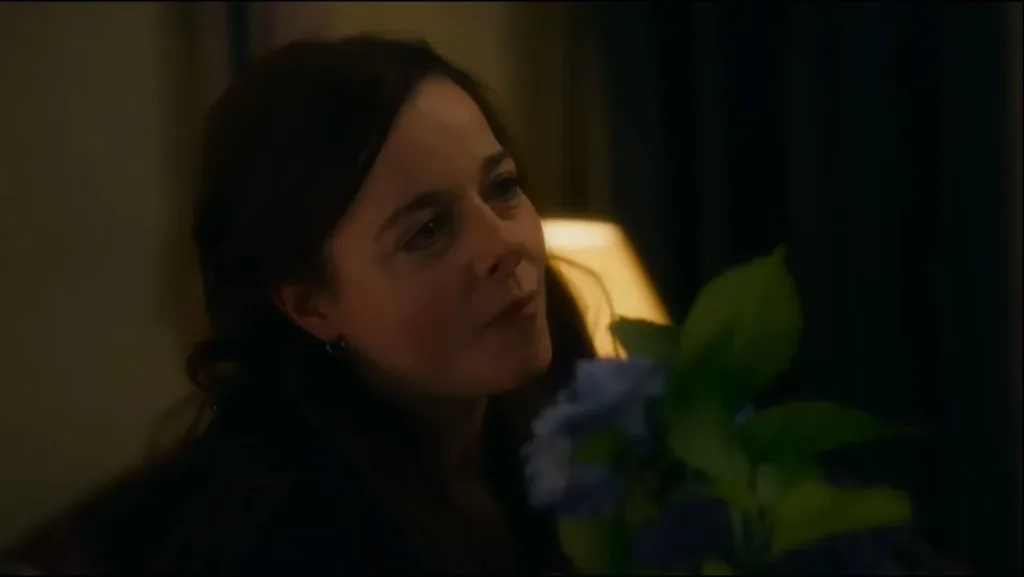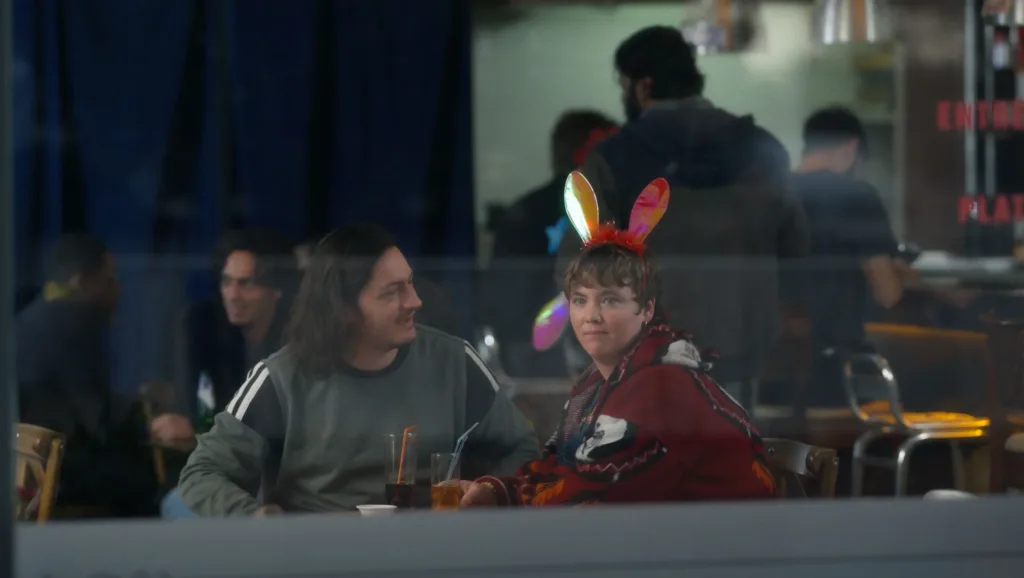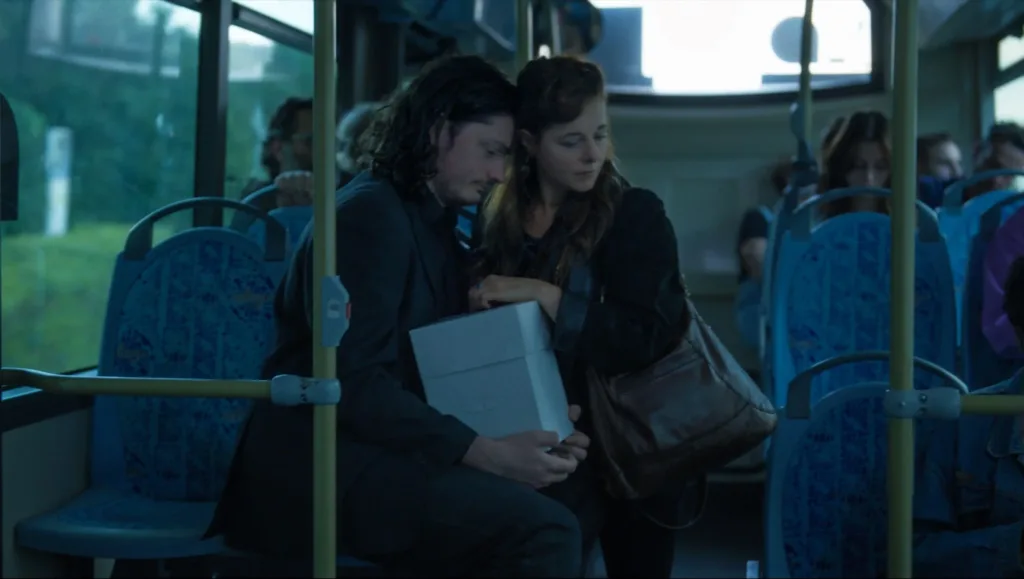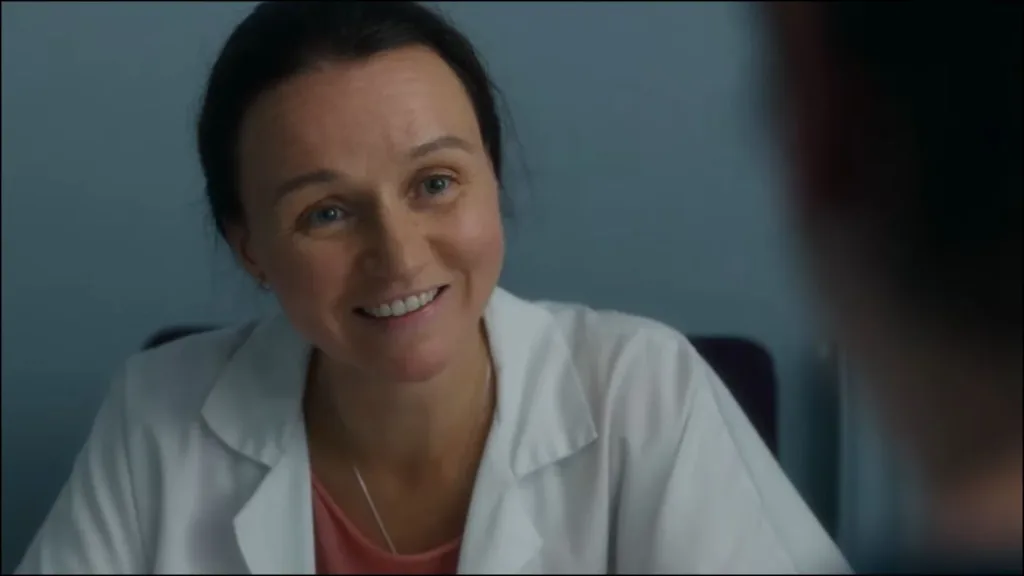My Everything tells the moving story of Mona, a devoted single mother caring for her adult son Joël who lives with cognitive disabilities. Directed by Anne-Sophie Bailly and starring the incredible Laure Calamy, this film premiered in the Orizzonti section at the Venice Film Festival.
Mona works tirelessly each day to support Joël, who she has cared for alone since his birth. Her whole life revolves around his needs and well-being. Joël also works at a facility for people with special needs, where he has fallen in love with a coworker named Océane. When they announce she is pregnant, it brings unexpected change and challenges.
As a longtime single parent, Mona struggles with how much autonomy to give Joël to make his own choices. She wonders if they are ready for such a big responsibility as parenthood. Meanwhile, Mona’s own needs and personal life have been long neglected. Through powerful acting and sensitive direction, My Everything offers moving insights into the demands of caregiving, dependency in relationships, and a mother’s sacrificial love.
The challenges of caregiving
Mona has cared for her son Joël his whole life, as he lives with cognitive disabilities. Joël works at a facility where he met Océane, who has a similar condition. The two have begun a romance, keeping it private at first.
When Océane shares that she is expecting a baby, it brings unexpected change. Joël is overjoyed at the idea of fatherhood. However, Océane’s parents fiercely oppose the pregnancy. As a single mother, Mona has sacrificed much of her own life to support Joël. She wonders if they are ready for the responsibility of a child, especially without additional help.
Mona’s relationship with Joël is incredibly close yet also codependent after years of only having each other. The announcement increases Mona’s daily stress of caring for Joël while ignoring her own needs. She feels overwhelmed at the prospect of an expanded role, with all the potential risks and burdens of care. Though she loves her son dearly, Mona has never known a life outside this role.
Laure Calamy expertly captures Mona’s exhaustion in juggling it all. While wanting the best for Joël, she dreams of a time when she can focus on herself without guilt. The dynamic between Mona and Joël, and how much control she retains, forms the film’s emotional core. It explores the heavy responsibility of providing constant care, and one woman’s journey as she learns to care for herself too.
Exploring Complex Themes
This film takes on many thought-provoking themes. One is the challenges of caregiving without a support system. Mona has sustained this role alone for decades, ignoring her own needs. The film shows how exhaustion can build over time from having no outlet. We also see dependency in these relationships – Mona and Joël rely solely on each other after so many years.
Autonomy isanother theme. Joël wishes to make his own choices about relationships and parenthood. For Mona, letting go of control isn’t easy after always making decisions for him. The film gives Joël and Océane’s romance a complexity we don’t always see with disabled characters on screen.
Mona feels she sacrificed her own dreams to care for Joël. In one scene, frustration boils over about her desire for a so-called “normal” life. This raises interesting questions about societal views and expectations placed on mothers, especially those who rely on the perceptions of others.
Bailly’s film handles these topics with nuance. It shows how easy it is to judge others’ situations from the outside looking in. Relationships like Mona and Joël’s are complicated, with dependencies forming from necessities of care. Her journey involves learning to see Joël as more than just her responsibility, while also caring for herself after neglecting her own needs. This film gives insightful perspective on its challenging themes.
Bringing the Story to Life
Bailly’s direction is quite masterful. She navigates complex themes in a relatable way through thoughtful pacing. Whether showing Mona’s frustrations subtly or her intense responses, the emotions feel authentic.
Color is also used beautifully. Green represents the characters seeking unity with their surroundings, a common desire for most. Gray in Joël’s father’s home denotes his cold detachment from his son.
One poignant scene takes Mona and Joël to Belgium. When Joël wanders from her in a parade, the panic she feels in a foreign place shows her deep care but also limits. We understand her choice to drive Joël away, even if disagreeing, because Bailly lets us truly see inside Mona.
Nader Chalhoub’s cinematography enhances every moment. Scenes emphasize characters’ isolation or intimacy, subtly conveying their internal worlds. Natural lighting paints even simple locations with an emotional depth. Together with top-notch editing, Bailly and her team bring an intimate, resonating human story to life on screen. Their mastery of visual storytelling deepens our involvement in Mona’s moving journey.
Breathtaking Performances That Bring the Story To Life
Laure Calamy delivers a powerhouse performance as Mona that must be seen to be believed. She shows the character’s immense strength even as strain begins to show through in subtle expressions. Calamy perfectly illustrates Mona’s journey from when we first meet her holding everything together, to moments where she can no longer keep up the facade.
Charles Peccia Galletto and Julie Froger also shine in their roles of Joël and Océane. They portray a genuine bond between their characters and the desire for normalcy that any couple shares. Though disability is part of their story, Bailly ensures it does not define them – they feel as multidimensional as people we know in our own lives.
From shared giggles to the tense discussions pregnancy brings, these actors breathe profound humanity into their portrayals. We understand each character’s perspective because of talents who fully embrace the depth and nuance Bailly’s script provides. Calamy especially illuminates the film and anchors the audience emotionally in Mona’s plight, even when she makes unpopular choices. Her raw performance is nothing short of revelatory.
Together the cast brings an astounding realness and empathy to this moving story. They prove that beyond any topic, true understanding comes from recognizing our shared vulnerabilities as people.
Examining Pivotal Moments
The film opens with bubbles underwater, appearing separate but uniting into one. This perfectly sets up Mona and Joël’s codependent bond, how their lives merged through her lifelong caregiving.
When Mona drives Joël to Belgium, her panic at losing him shows just how reliant they are – and how suffocating that feels for her. Bailly lets this moment speak volumes about Mona’s sacrifice and strengthening desire to reclaim parts of herself.
Mona’s frustration boiling over to Frank gives a window into suppressed feelings. Her outburst, using the loaded word “normal,” stems from years of shouldering responsibilities alone without an outlet. This scene augments our understanding of her journey.
When police take Joël to his detached father, the cold gray colors used depict the man who abandoned parenting duties. Contrasted with Mona’s deep green, this impactful scene highlights how she’s been left as the sole anchor in Joël’s life.
Bailly’s expert direction ensures these and other impactful scenes resonate on an emotional level. They provide multifaceted looks inside the characters’ psychology and relationships in a way that feels authentic, empathetic and thought-provoking.
A Powerful Examination Sure To Resonate
Through phenomenal performances and sensitive direction, My Everything tells a story sure to spark contemplation. Laure Calamy and the cast immerse us in the relationships at its heart. Meanwhile, Anne-Sophie Bailly handles complex themes with care and nuance.
By shining a light on the reality of lifelong caregiving, independence, and societal prejudgements, the film prompts reflection. It illustrates how easily circumstances beyond one’s control can shape a life. And how attachments form from meeting our basic human needs of reliability and affection.
Bailly leads us to empathy for the difficulties all characters face rather than rushed judgment, while avoiding mawkishness. She illuminates the challenges of learning to see loved ones as individuals, not solely extensions of ourselves, as Mona comes to. Complex issues demand understanding from varied perspectives.
This intimate insight feels important for any who have sacrificed parts of themselves for another’s wellbeing. It leaves one thinking on how to find balance between commitment to others and to one’s own fullest potential. Calamy and company have crafted an unforgettable story that enriches through sticking with you afterwards in thoughtful quietude. For those reasons, I’d say My Everything and its masterful lead performance are well worth experiencing.
The Review
My Everything
Through empathetic storytelling and raw performances, My Everything presents a moving examination of challenging themes that many can relate to in some way. By shedding light on the intricacies of caregiving relationships, autonomy, and society's expectations, it prompts reflection in a way that feels meaningful. While not providing easy answers, Bailly crafts a film that sticks with you as it portrays humanity at its best and most complex.
PROS
- Powerful performances, particularly from Laure Calamy
- Sensitive handling of complex themes around caregiving, dependence, control
- Authentic and believable characterizations
- Striking yet subtle use of visual and audio elements
- Thought-provoking exploration of societal views on disability and motherhood
- Avoidance of sentimentality in favor of honest emotional depth
CONS
- Narrow focus on Mona's perspective at times sidelines other characters
- Slow pace may not appeal to all audiences
- Open-ended conclusion leaves some themes unresolved





















































